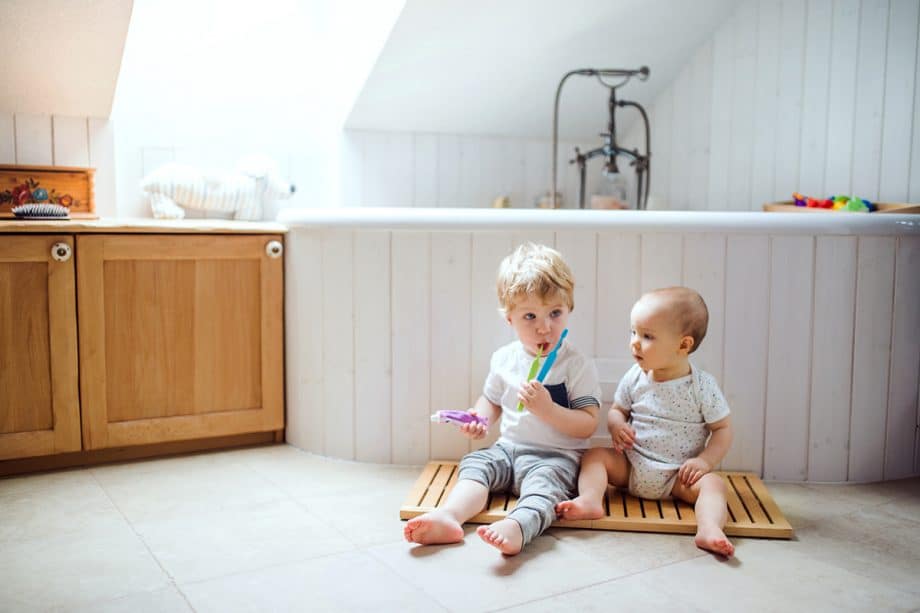Is your child afraid to go to the dentist? Dental anxiety is normal for children. It manifests in many different ways from crying fits, refusing to get in the car when it’s time to go, being uncooperative at the dentist’s office, and even physical symptoms like nausea and fainting.
Going to the dentist doesn’t have to be a fearful experience for your child. There are ways to calm children’s fears. Here are some suggestions to help your child feel better about dental appointments.
Preparing For the First Visit
In many cases dental anxiety can be prevented when the child’s relationship with their dentist and dental team gets started on the right foot. According to the Academy of Pediatric Dentistry, babies should go to the dentist for the first time around their first birthday. The purpose of the first dental appointment is allow your baby to get acquainted with the experience of going to the dentist, and to evaluate their early dental health. You and your baby will meet the dentist and the rest of the dental team and get a feel for the experience. Getting your baby used to going to the dentist at a young age can help prevent dental anxiety from ever developing.
Calming Fears in Young Children
After the first appointment, your child should see the dentist every 6 months. When they reach the toddler and preschool years it can be helpful to let them watch a kid-friendly video of what a basic dental cleaning and exam looks like. If your child has questions, answer them as simply and truthfully as possible while staying positive. Don’t tell your child that anything will hurt or talk about needles or anything that could incite fear. Let the dental team answer their questions during their appointment.
Calming Fears in Older Children
When older children have dental anxiety, you may need to take a different approach to calming their fears. They know what to expect by this age, so lying to them won’t help, it will only create a lack of trust. Do your best to answer their questions honestly but positively, or suggest that they ask the dental team their questions once you arrive at the dentist’s office. It can help to request the same dental hygienist when you schedule appointments if your child has a preference. Be supportive, but insist that dental appointments are not optional.
Patients With Special Needs
Children and adults with special needs can experience a higher level of dental anxiety than the average patient. Autism, emotional disorders, physical and mental disabilities, and other conditions can make going to the dentist very stressful. Take your child to a dentist who specializes in patients with special needs, because not every dental office is trained and equipped to provide the care your child requires.
When Sedation Dentistry is Appropriate
In some cases of extreme anxiety or for certain procedures, it can be helpful to use sedation. There are varying types and degrees of sedation that can be used for dental procedures and even routine cleanings and exams. Nitrous oxide (laughing gas) can help patients relax. It works quickly and wears off almost immediately when your child stops breathing it. Oral sedation is a pill or liquid your child can take before their appointment to help them relax. When a deeper level of sedation is needed, IV sedation can be used to put patients to sleep on a mild level. They are still responsive while sedated, but won’t remember anything about their procedure.
Discuss sedation options with your dentist if you feel that it would help your child get their dental needs met with less anxiety.
Orange County Pediatric Dentistry Provides Compassionate Care
If your child is fearful about going to the dentist, Orange County Pediatric Dentistry will treat them with patience and compassion. From the first dental visit, we help your child feel comfortable, making it as fun and relaxing as possible. We offer a range of sedation options if you feel your child would benefit from a little extra help to feel calm.
Call 845-928-2206 today to schedule a consultation or request an appointment. We look forward to helping your child get the right start to a lifetime of dental health.


